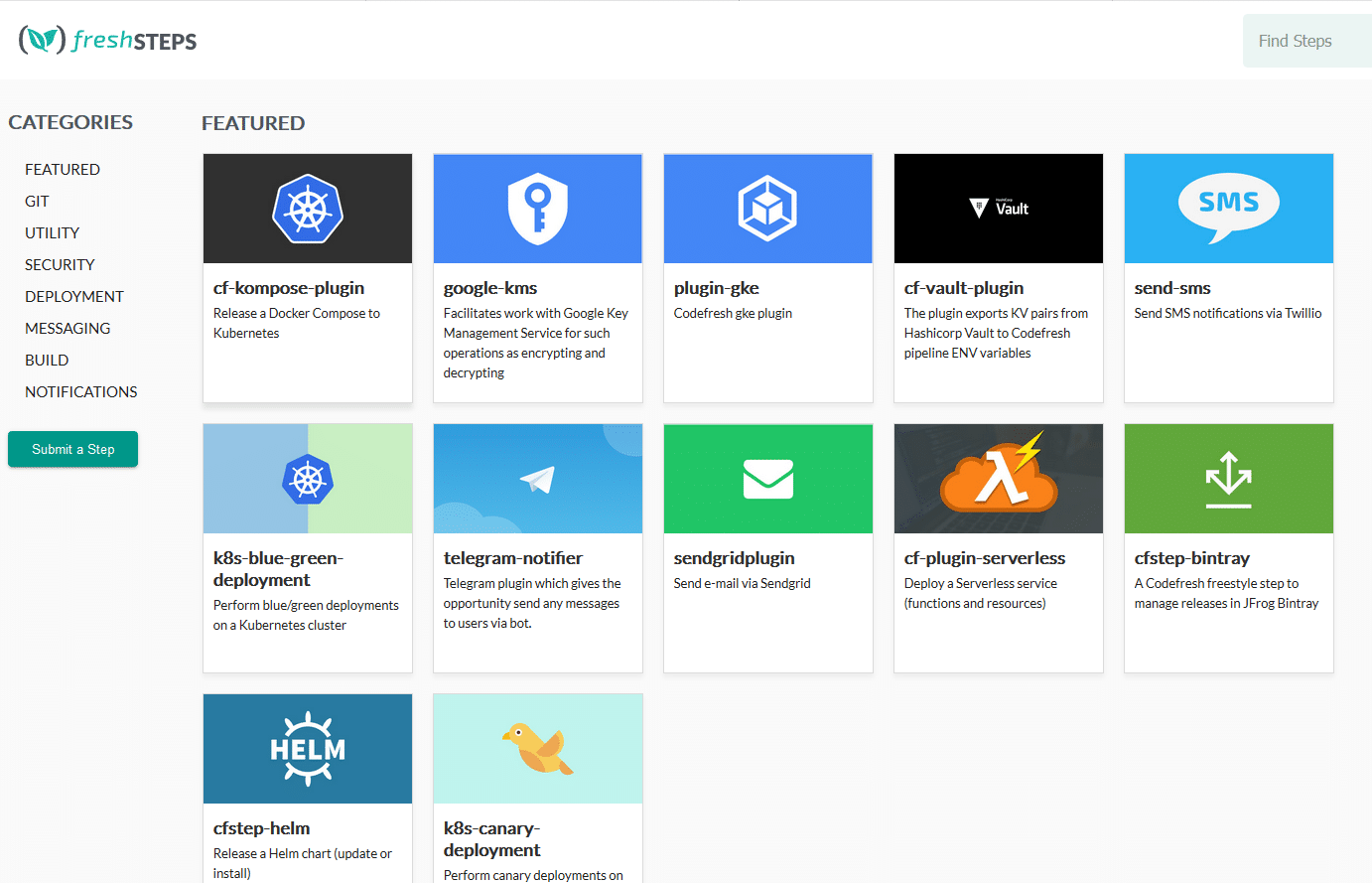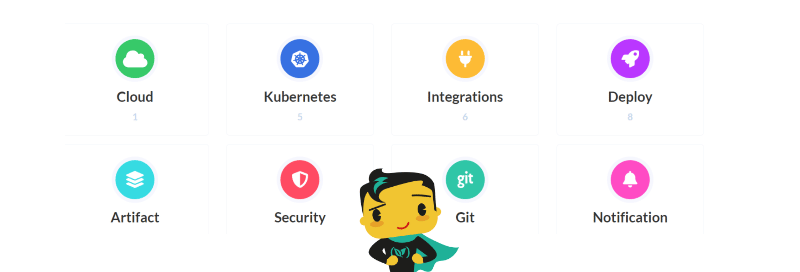Today, Codefresh is launching the plugin marketplace, a collection of pipeline steps that can be easily used by pasting the respective yaml segment in any pipeline.

The plugin marketplace contains an initial set of pipeline steps contributed both by Codefresh and our partners. All plugins are open-source and anybody can contribute to the collection by creating a new plugin.
More importantly, all Codefresh plugins are incredibly easy to create, as each plugin consists of a Docker image with a well-defined set of input and output parameters. Since Codefresh has embraced Docker-based pipeline steps from its inception, it is very easy to use the plugins in Codefresh pipelines.
Getting a working pipeline in production has traditionally involved a lot of time from one or more dedicated engineers. In most enterprise companies, maintenance of the CI/CD platform is a full-time job because most legacy solutions are based on custom scripts and formats that lead to vendor lock-in.
Extending a legacy CI/CD platform is also difficult, as writing plugins typically requires the knowledge of the internal API or the specific programming language that is used for the platform. Codefresh, on the other hand, adopts a fully open architecture by using Docker images as the base of each plugin.
Writing a Dockerfile is straightforward and not specific to any particular vendor. In addition, Docker images can package any current or future programming language allowing for greater flexibility for plugin developers. Do you want to write a Codefresh plugin in Rust? Go ahead. In Perl6? Sure why not? In Haskell? We support that too…
Our vision for the plugin marketplace is to be a source of building blocks for your pipelines. It is very easy to search for a keyword and see if there is a step for that method.
Currently, we have started from the basics with steps for:
- Kubernetes/Helm deployments
- Git integrations
- Slack notifications
- Image security scanning
- Test environment creation
- Blue/Green/Canary deployments
We expect the community to add more plugins as the adoption of Docker within companies skyrockets and the benefits of Docker based tooling become more clear.
If you want to know more about why Codefresh pipelines are different feel free to read the extensive documentation, or for the visual learners among you follow our webinar for Docker-based builds.
New to Codefresh? Start Creating Your Own Pipelines Today!
